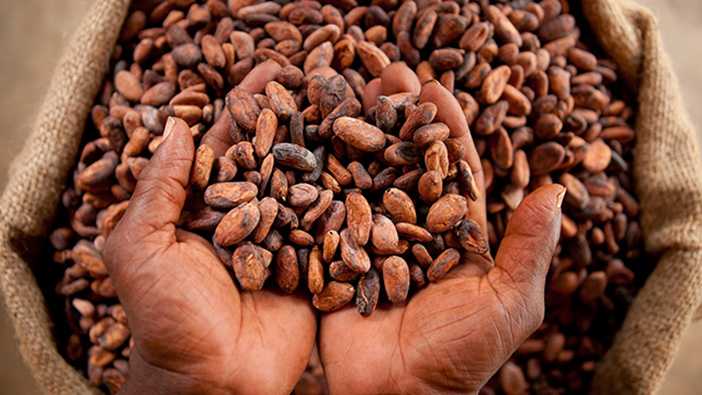BRUSSELS, Belgium – The EU will contribute €25 million to enhance the economic, social and environmental sustainability of cocoa production in Côte d’Ivoire, Ghana and Cameroon who are, respectively, the first, second and fifth biggest cocoa producers, generating almost 70% of the world production. This funding strengthens the partnership between Team Europe (composed of the EU, its Member States, and European financial institutions) and the three cocoa producing countries and aims at ensuring a decent living income for farmers, halting deforestation and eliminating child labour.
Valdis Dombrovskis, Executive Vice-President for an Economy that Works for People, said: “The EU trade agenda is underpinned by EU values. By investing in programmes to promote fair trade and sustainability in the cocoa sectors of Côte d’Ivoire, Ghana and Cameroon, we are strengthening our trade and investment relationships for our mutual benefit. Building the social and environmental aspects of the cocoa supply chain will deliver further economic benefits for local farmers and cooperatives.”
Jutta Urpilainen, Commissioner for International Partnerships, said: “European consumers are demanding fair and environmentally sustainable products and producing countries committed to address sustainability issues in their cocoa value chains. It is time to make a real change and the EU is committed to play its part as an honest broker between economic operators, development partners, Côte d’Ivoire, Ghana and Cameroon.”
Following the launch event of the EU inclusive dialogue on sustainable cocoa, the “Cocoa Talks”, on 22 September 2020, today takes place the Cocoa Talks inaugural round-table webinar with the participation of EU public and private stakeholders and selected representatives of the two main producing countries, Côte d’Ivoire and Ghana. The objective of this dialogue is to enhance cooperation and coordination to support sustainable cocoa production in the framework of the Living Income Differential (LID) initiative, launched by the two producer countries to ensure decent revenue to local farmers.
The EU dialogue will be mirrored by similar dialogues at country level. Concretely, the €25 million will fund parallel multi-stakeholder dialogue events at national and regional level in Côte d’Ivoire, Ghana and Cameroon, involving government, private sector companies and civil society. It will improve the ability of farmers’ cooperatives and other bodies to represent local communities. It will train farmers on sustainability, tree replacement, reforestation, and ensure their awareness of child labour regulations.
Background
Cocoa is a major contributor to export earnings, as well as the main source of livelihoods for almost seven million farmers in Côte d’Ivoire and Ghana. Indirectly, cocoa contributes to the livelihoods of further 50 million people. At the same time, cocoa production entails particular risks relating to child labour, low revenues for local farmers, deforestation and forest degradation.
The European Union is the world’s largest importer of cocoa, accounting for 60% of world imports. Côte d’Ivoire, Ghana and Cameroon are major suppliers of cocoa into the EU market, to which the first two have duty-free and quota-free access under their respective Economic Partnership Agreements.
In June 2019, Côte d’Ivoire and Ghana took an initiative on cocoa prices that led to an agreement with the cocoa and chocolate industry to create a Living Income Differential (LID) to ensure decent revenue to local farmers. At this stage, it is a US$400/ton premium paid beyond the price of the cocoa futures markets. Cameroon has expressed interest to join the initiative.
Building on this initiative and in line with its political priorities under the EU Green Deal and the Commission’s ‘zero tolerance’ approach to child labour, the EU engaged in a partnership with Côte d’Ivoire and Ghana to link this price increase to further action with respect to deforestation and child labour related to cocoa production.
It translated into an EU-based multi-stakeholder dialogue launched on 22 September 2020 with representatives from the EU institutions and Member States, civil society, private sector and Ivoirian and Ghanaian representatives to:
- Advance responsible practices of EU businesses involved in cocoa supply chains;
- Feed into other relevant horizontal Commission initiatives (e.g. on due diligence, deforestation);
- Feed into the policy dialogue between the EU and the producer countries; and
- Identify support projects on sustainable cocoa production.










